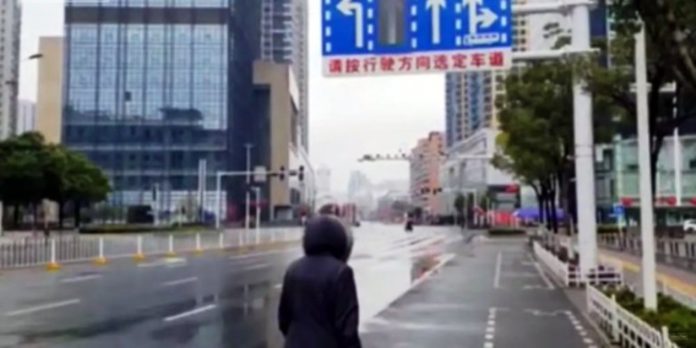A Ghanaian student quarantined for more than a month in the Chinese city at the epicentre of the coronavirus outbreak, Wuhan, has recounted his experience to the BBC.
“The experience is not easy. It is, I think, so far the most stressful and traumatic experience that I have had,” said the student who wants to be known only as Kwaku.
In a Focus on Africa podcast published on February 28, 2020, Kwaku revealed students in Wuhan lockdown are having to adapt mentally and emotionally.
“Now I am feeling okay. Not really okay because I didn’t know the quarantine was going to last this long and at a point, we were a bit hopeful that our government [Ghana] will come and evacuate us but last week we were told that we were not going to be evacuated. So despite the support of the Chinese government, now we are having to adapt mentally and emotionally to the fact that we not going to be evacuated to make do with the time that we have here. So it’s not been easy.
“But the anxiety and panic have gone down because we are now under a very tight lockdown. We are not allowed to get out at all. So you can get out of your room and walk on the corridor, walk around but you can’t get out,” he told BBC’s Audrey Brown.
Kwaku is among 350 students in Wuhan and despite the lockdown, the Chinese government has ensured that every student is well fed and catered for.
“When we wake up the morning around 7:30 to 8:00 we go pick our breakfast, then between 11:30 to 12:30 we go pick lunch [and] around 5:30 to 6:30 we go pick dinner then we are in our rooms.
“We are not allowed to interact with one another because we don’t know who is infected or not. So even when we go out to pick dinner and we happen to form a queue, we leave spaces, enough spaces, in between us,” he recounts.
He reveals that there is a strict directive for every student to wear masks and protective clothing at all times.
“If you don’t wear them they will not allow you to get there [canteen]. They will tell you to go back,” he said.
Apart from students from sub-Saharan Africa, those from other parts of the world – United States of America, Europe, North Africa, Middle East and Asia – have all been evacuated, according to Kwaku.
“We have a lot of Ghanaians here,” he said.
“Initially, we were very hopeful that the virus was going to be contained within a week or two and we were all in a panic mode because we were not sure about how the virus is being transmitted. There were a lot of rumours but as time passed we became aware of how it is being transmitted. So it became a little bit relaxed.
“But later we saw the infections going up. So now the atmosphere here became one of anxiety, fear and panic. And there were a lot of cases where some of the students were experiencing mental and emotional breakdown and panic attacks. So it wasn’t easy,” Kwaku recounts.
Despite the support by the Chinese government, Kwaku says there is little or no social support for them.
“Most of us are students and because of the limited social support, we only engage with our families through social media – WhatsApp and all that – we have very limited social support and the language is also another barrier. So aside the services they [Chinese government] are providing to us, we are still very vulnerable,” says Kwaku.

